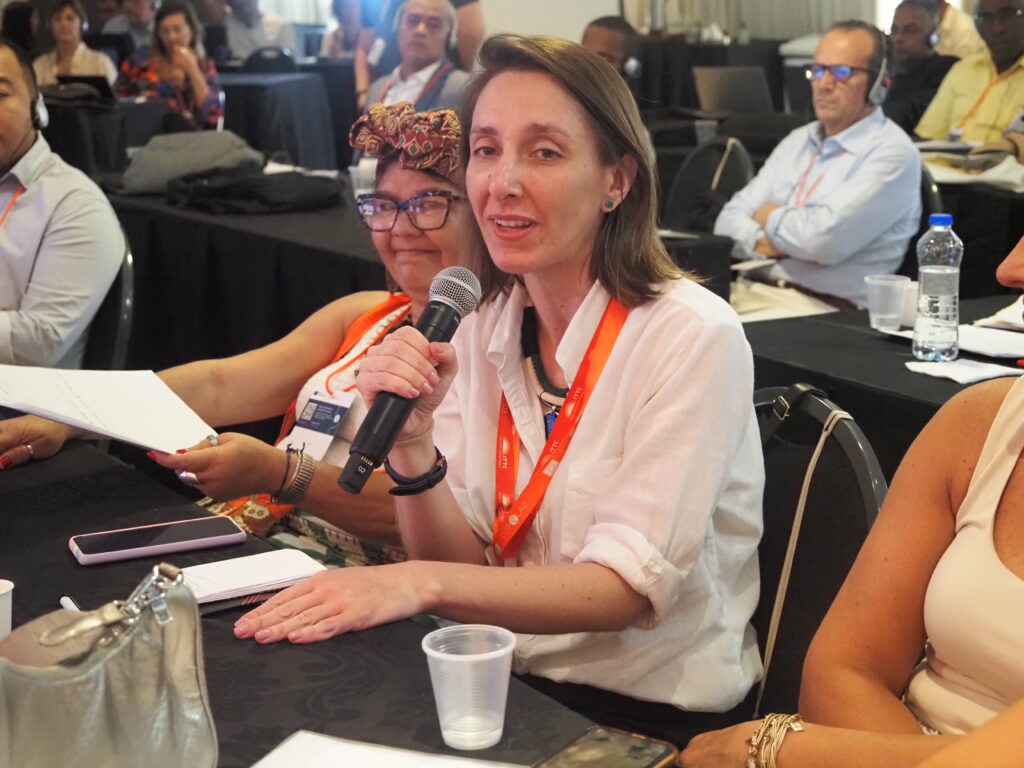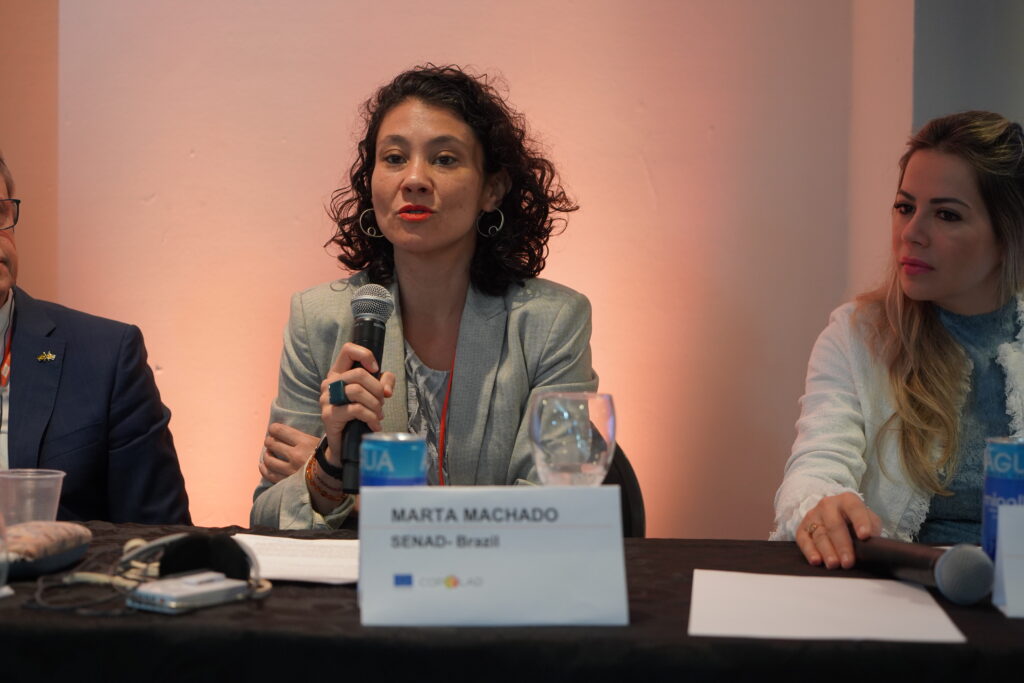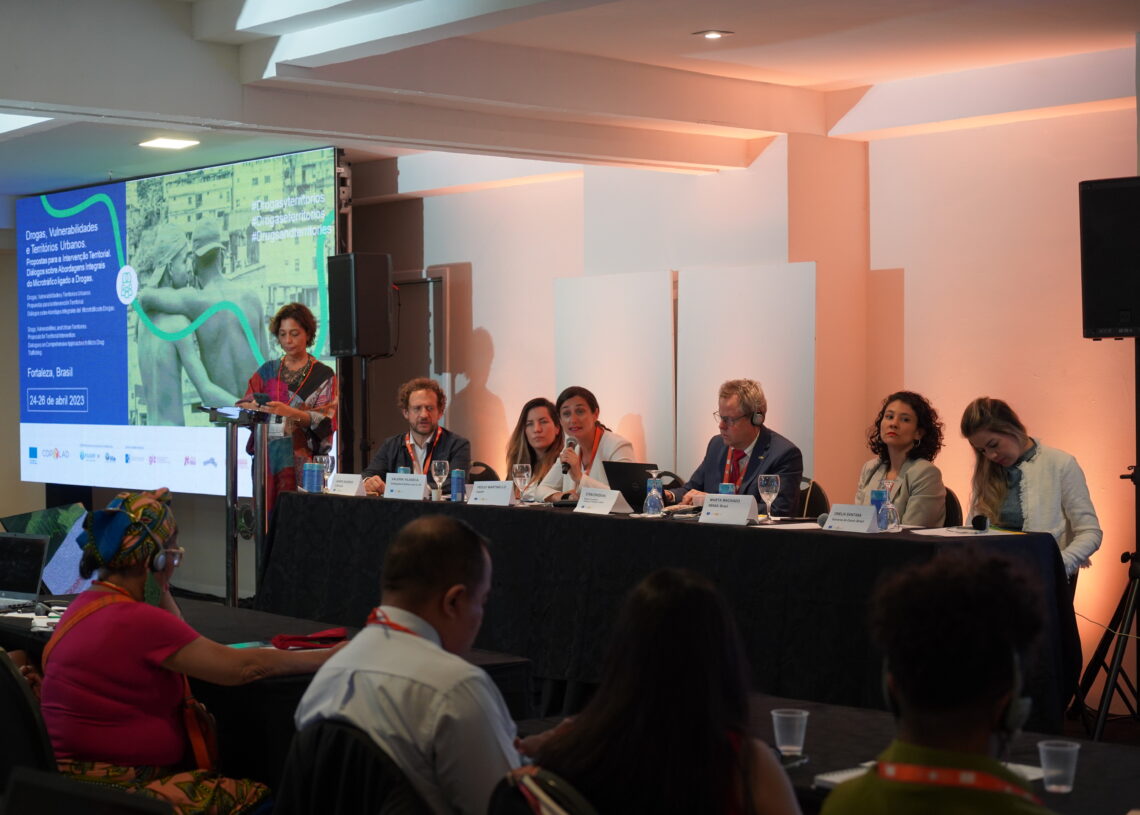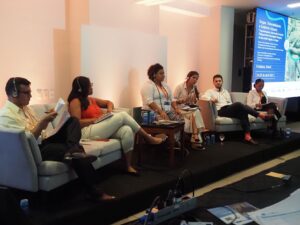After three days of debates, the seminar “Drugs, vulnerabilities and urban territories” was closed on Wednesday (26), in Fortaleza, Ceará, defending a new generation of drug policy – more effective and humane. Throughout the event, there was a great exchange of actions and effective measures of 23 countries in Latin America, the Caribbean and the European Union. The event was organized by the National Secretariat for Drug Policy and Asset Management of the Ministry of Justice and Public Security (Senad/MJSP) in partnership in the framework of the Cooperation Program between Latin America, the Caribbean and the European Union on Drug Policy (COPOLAD III).
 The conclusions will be sent to the meeting of the CELAC-EU Coordination and Cooperation Mechanism on Drugs that will meet in Barcelona (Spain) at the end of August. The event discussed policies to combat drug trafficking, measures to curb micro-trafficking and how to develop policies that address drugs, territories and social vulnerability. The seminar was attended by governments, civil society, international organizations and academia from different areas such as health, justice, police, drugs, social economy and economic inclusion, and financial, social services, culture, youth, among others.
The conclusions will be sent to the meeting of the CELAC-EU Coordination and Cooperation Mechanism on Drugs that will meet in Barcelona (Spain) at the end of August. The event discussed policies to combat drug trafficking, measures to curb micro-trafficking and how to develop policies that address drugs, territories and social vulnerability. The seminar was attended by governments, civil society, international organizations and academia from different areas such as health, justice, police, drugs, social economy and economic inclusion, and financial, social services, culture, youth, among others.
Multidisciplinarity was defended as an effective practice by COPOLAD’s director, Javier Sagredo. “This space has been very useful for us to prove that only comprehensive public policies that address drugs in conjunction with other elements present in the life of communities will be effective. It is also necessary to work with the concept of citizen public security, which respects human rights”.

Foco en mujeres y poblaciones indígenas
For her part, the National Secretary of Drug Policies, Marta Machado, highlighted the importance of evidence-based public policies to work on the issue. “We know that actions must have solid bases. Throughout this time, we have many inputs that prove the effectiveness of actions that listen and take into account the specificities of each context. We divided our strategy into working groups for women, indigenous people, peripheral black population, children and adolescents, and street population. Based on this and on discussions such as those held at this seminar, we will make significant progress.”
On the third day, Judge Karen Louise Vilanova Batista participated in a panel that discussed changes and effective responses to micro-trafficking. She noted that it is often difficult for the state to see people in vulnerable situations. “Some incarcerated people do not even have identity documents. This means that they do not exist for the State. The first policy they should be entitled to is social security, and they don’t even receive it,” he said.
The aim of the seminar is to contribute to an integral approach to drug policy, discussing and exploring alternative forms of development and more humane and effective public policies, focused on the most vulnerable groups. Topics such as the relationship between drugs and the most vulnerable populations, life on the streets, risk and harm reduction, attention, monitoring and care services, gender, race and ethnic inequalities, social and economic inclusion, territorialization of public policies, community approaches, and economic inclusion processes were addressed.
The event received representatives from international organizations such as the United Nations Office on Drugs and Crime (UNODC), the United Nations Development Programme (UNDP), the United Nations Human Settlements Programme (UN-Habitat) and the Global Initiative Against Transnational Organized Crime.
Invited countries include Argentina, Brazil, Chile, Costa Rica, Ecuador, Guatemala, Honduras, Mexico, Peru, Dominican Republic, Uruguay, Venezuela, Bahamas, Barbados, Belize, Jamaica, Saint Kitts and Nevis, Saint Vincent and the Grenadines, Suriname, Trinidad and Tobago, Bulgaria, Greece, and Portugal.








